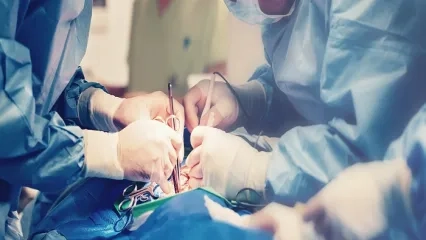Alo Yeditepe
Alo Yeditepe
You Can Be Protected from Varicose Veins During Pregnancy
Drawing attention to the fact that varicose veins increase during pregnancy, Yeditepe University Hospital Cardiovascular Surgery Specialist said, “With some measures to be taken during this period, the increase in varicose veins can be prevented.”
Why are varicose veins more common in pregnant women?
Although varicose veins do not create a severe and life-threatening condition, they are one of the leading conditions that negatively affect daily life and quality of life at almost every period. According to scientific studies conducted, it can be said that varicose veins are more common in women who are pregnant or who have become pregnant and given birth than in those who have not become pregnant. Likewise, it has been observed that those who have not had varicose veins during the pre-pregnancy period have had increased varicose veins complaints during and after pregnancy. The prevalence of varicose veins in pregnant women is higher than in the normal population. In Western societies, its prevalence among pregnant women is around 40%.
How do varicose veins develop during pregnancy?
During pregnancy, varicose veins develop in 3 different ways:
- As a result of the dilation effects of hormones (especially progesterone) on vascular smooth muscles,
- Due to the pressure applied by the mother's uterus on the veins from the leg and the adverse effect of the increased blood pressure resulting from this pressure on the veins especially during the final stages of the pregnancy,
- Due to the collection of the increased amount of blood in the legs during pregnancy.
At what period of pregnancy do varicose veins increase?
Varicose veins usually occur more on the left leg during pregnancy due to a peculiarity of the body's anatomy. The period during which varicose veins are most severe in pregnant women is between the 37th and 40th weeks of pregnancy. Almost all of the varicose veins return to their pre-pregnancy sizes within six weeks after pregnancy.
What are the symptoms of varicose veins during pregnancy?
Although there are not usually many complaints about varicose veins, the fact that legs become heavy, leg cramps that occur especially during the rest period, itching around the varicose veins, or the most common burning sensation can be listed among the symptoms. Complaints gradually increase in the late stages of pregnancy, especially in those who stand for a long time.
Are the varicose veins and spider veins formed during pregnancy permanent?
About 85% of varicose veins that occur during pregnancy disappear within three months after pregnancy. Approximately ...%, on the other hand, becomes permanent.
Do you recommend varicose veins treatment during pregnancy?
Due to the potential to harm the mother and baby during pregnancy, only the treatment of “compression stockings for pregnancy” is recommended. Other treatments, especially medication or sclerotherapy, should not be used during pregnancy and lactation because they are of high risk. However, some studies state that oral medication administration may be allowed after the first three months.
During pregnancy, varicose vein surgery is usually not performed. However, although rare, a surgical procedure can be performed in vessels that are very severely dilated, painful, or prone to bleeding. Varicose veins that occur during pregnancy should be closely monitored by both an obstetrician and a cardiovascular surgery specialist, and precautions should be taken early for potential undesirable situations that may develop.
To be protected from varicose veins during pregnancy or to prevent the progression of varicose veins, the following can be performed:
- One should be physically active... Especially regular morning and evening walks and performing sports in which the leg-calf muscles are actively used, such as swimming or cycling, reduce the development of varicose veins during pregnancy.
- One should avoid gaining excessive weight before and during pregnancy.
- Sitting for a long time and standing still should be avoided.
- Cold water shower: Cold water application is a factor that facilitates the contraction of the veins and the return of blood to the heart, while a hot water bath or a hammam/sauna session is a vasodilator, having the opposite effect.
- Loose and comfortable clothes should be worn... Tight clothing should be avoided, and situations that prevent vein circulation (belt or tight socks) should be eliminated.
- High heels should not be worn. Heel height negatively affects the calf muscle's pump function.
- It is recommended to use “compression tights for pregnancy” in order to provide mechanical support from the outside to the veins that tend to dilate due to negative factors during pregnancy.
- The lying position should be well adjusted. Pregnant women should lie on their left side and support their back with a pillow from behind.
- Legs should be raised up at every opportunity. They should be raised with a pillow, especially when resting or lying down.
- While sitting, one should cross their legs and avoid sitting cross-legged.
- Smoking should be stopped: smoking has an adverse effect on the vascular wall due to the free radicals it creates and paves the way for the formation of varicose veins.
- Salt should be reduced as it will retain water and increase edema. In addition, the necessary measures should be taken to protect the veins that are dilated and prone to bleeding.
This content was prepared by Yeditepe University Hospitals Medical Editorial Board.
”
See Also
- What is a Bypass? How is Bypass Surgery Performed?
- Surgical Treatment of Heart Valve Diseases
- He Went to the Hospital with Leg Pain, Discovered His Carotid Artery Was 95% Blocked
- Does an Aortic Aneurysm Show Symptoms ?
- What is an Aortic Aneurysm? How is it treated?
- Aortic Aneurysm
- Drug Treatment is Priority Leg Vein Obstructions
- Cardiovascular Diseases
- Pain in the Legs May Be a Sign of Vascular Congestion
- Which Diseases Can Swelling in the Legs Indicate?
- Stay Away from Depression and Protect Your Heart!
- Do Not Let Varicose Veins Be Your Nightmare During Pregnancy!
- Frequently Asked Questions About Varicose Vein
Alo Yeditepe





